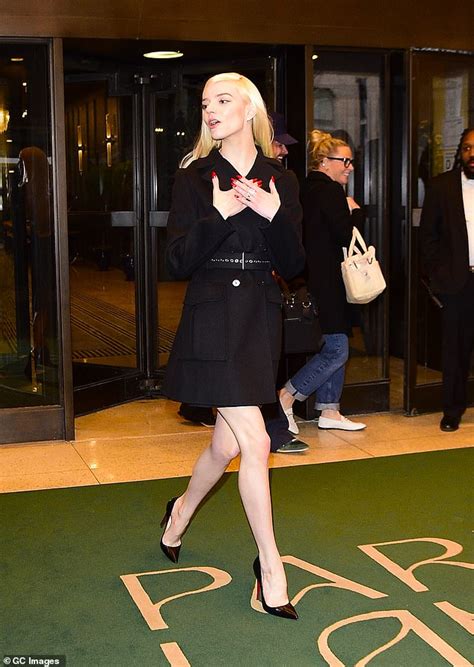
Paris Hilton’s latest photos of her two children, Phoenix Barron and London Marilyn, have ignited a social media frenzy, drawing attention to their appearances and sparking widespread discussion.
Paris Hilton recently shared new pictures of her children, Phoenix Barron and London Marilyn, on social media, prompting a wave of reactions from her followers. The images quickly went viral, generating extensive discussions about the children’s appearances, particularly that of her son, Phoenix. While many fans expressed their admiration and support, some negative comments surfaced, leading Hilton to address the criticism and defend her children.
The initial images showcased Phoenix and London in adorable outfits, capturing the essence of their early childhood. The public response was immediate, with many users commenting on the children’s features. However, some comments focused negatively on Phoenix’s head size, which Hilton vehemently denounced.
“There are some sick people in this world,” Hilton wrote in response to the negative comments. “To comment on anyone’s child, let alone something that is quite sensitive, is disgusting.” She further emphasized her unwavering love for her children and her commitment to protecting them from negativity.
This incident has brought to light the challenges faced by public figures when sharing aspects of their personal lives, particularly when it involves their children. The debate underscores the fine line between public interest and the right to privacy, as well as the impact of social media commentary on celebrities and their families.
Background and Initial Reaction
On May 30, 2024, Paris Hilton posted a series of photos featuring her two children, Phoenix Barron Hilton Reum and London Marilyn Hilton Reum, on her Instagram account. The photos were intended to share a glimpse into her life as a mother and to celebrate her children’s milestones. The images showed Phoenix and London in various settings, including playtime at home and outings.
The initial response to the photos was overwhelmingly positive. Many fans and followers flooded the comments section with messages of support and admiration. Comments such as “Beautiful family!” and “Your kids are adorable!” were common. However, amidst the positive feedback, a segment of users began to focus on Phoenix’s physical appearance, particularly the size of his head.
These comments ranged from insensitive remarks about his head size to outright negative assessments. The criticism quickly escalated, prompting Hilton to address the issue publicly. The negative attention was unexpected and deeply hurtful for Hilton, who has always been protective of her family.
Hilton’s Response
Paris Hilton did not remain silent in the face of criticism. She took to social media to express her dismay and to defend her son. In a heartfelt message, she condemned the negative comments and emphasized the importance of protecting children from online bullying and negativity.
“There are some sick people in this world,” Hilton stated. “To comment on anyone’s child, let alone something that is quite sensitive, is disgusting.” Her response was met with a wave of support from fans and fellow celebrities, who applauded her for standing up against online harassment.
Hilton further elaborated on her feelings in subsequent interviews and social media posts. She explained that she was shocked and saddened by the negativity, especially since she had only wanted to share joyful moments with her followers. She reiterated her unwavering love for her children and her commitment to shielding them from harm.
Public Debate and Media Coverage
The incident sparked a broader debate about the ethics of commenting on children’s appearances and the impact of social media on celebrity families. Media outlets picked up the story, highlighting the controversy and exploring the issues at stake.
Many articles and news segments focused on the negative comments directed at Phoenix and the subsequent backlash against the commenters. Experts weighed in on the psychological effects of online bullying and the importance of fostering a positive online environment. The discussion also touched on the responsibilities of social media platforms in monitoring and moderating content to prevent harassment.
Some commentators argued that public figures should expect a certain level of scrutiny when sharing personal information online. However, others emphasized that children should be off-limits, regardless of their parents’ celebrity status. The debate underscored the complexities of navigating privacy and public life in the digital age.
Impact on Paris Hilton and Her Family
The controversy has undoubtedly had an impact on Paris Hilton and her family. While she has tried to remain positive and focused on her children’s well-being, the negative comments have taken a toll. Hilton has spoken about the challenges of balancing her public persona with her desire to protect her family from harm.
In interviews, she has expressed her determination to use her platform to raise awareness about online bullying and to advocate for a more compassionate and respectful online environment. She has also emphasized the importance of teaching children about online safety and responsible social media use.
The incident has also prompted Hilton to re-evaluate her approach to sharing personal information online. While she remains committed to connecting with her fans and followers, she is now more mindful of the potential for negativity and more vigilant in protecting her children’s privacy.
Expert Opinions and Psychological Perspectives
Psychologists and media experts have offered insights into the underlying causes of the negative comments and the potential impact on those targeted. According to experts, online anonymity can embolden individuals to make comments they would not otherwise make in person. This phenomenon, known as the online disinhibition effect, can lead to a lack of empathy and a willingness to engage in hurtful behavior.
Furthermore, social comparison theory suggests that people often compare themselves to others as a way of evaluating their own self-worth. In the context of social media, this can lead to feelings of envy and resentment, which may manifest as negative comments directed at others.
The psychological impact of online bullying can be significant, particularly for children and young people. Victims may experience feelings of anxiety, depression, and low self-esteem. In severe cases, online bullying can even lead to suicidal ideation.
Broader Implications for Social Media and Celebrity Culture
The Paris Hilton incident highlights the broader challenges of social media and celebrity culture. Social media platforms have become ubiquitous in modern life, providing individuals with unprecedented opportunities to connect, share, and express themselves. However, they have also created new avenues for harassment, bullying, and the spread of misinformation.
Celebrities, in particular, face unique challenges in navigating the digital landscape. They are constantly under scrutiny and subject to intense public interest. While social media can be a powerful tool for connecting with fans and promoting their work, it can also be a source of stress and anxiety.
The incident underscores the need for greater responsibility on the part of social media platforms in monitoring and moderating content. Platforms have a duty to protect their users from harassment and to promote a safe and respectful online environment. This includes implementing stricter policies on hate speech and online bullying, as well as providing resources for victims of online abuse.
Paris Hilton’s Career and Motherhood Journey
Paris Hilton, a prominent figure in pop culture, has transitioned from her early days as a socialite to a multifaceted businesswoman, DJ, and media personality. Born on February 17, 1981, into the Hilton family, she quickly became a household name in the early 2000s. Known for her appearances on reality TV shows such as “The Simple Life,” her entrepreneurial spirit has led her to launch successful ventures in fashion, fragrance, and entertainment.
In recent years, Hilton has also embraced motherhood, a role that has significantly shaped her public image. She married Carter Reum in November 2021, and they welcomed their first child, Phoenix Barron Hilton Reum, via surrogate in January 2023. In November 2023, the couple announced the arrival of their daughter, London Marilyn Hilton Reum, also via surrogate.
Hilton has been open about her journey to motherhood, sharing her experiences with IVF and surrogacy. She has also expressed her desire to create a loving and supportive environment for her children, shielding them from the pressures and scrutiny of public life. Balancing her career with her responsibilities as a mother has been a central theme in her recent interviews and social media posts.
Hilton’s decision to share her children’s photos on social media reflects her desire to integrate her personal and public lives. However, the negative reactions she faced underscore the challenges of navigating privacy and public opinion in the digital age.
The Role of Social Media in Shaping Perceptions
Social media plays a significant role in shaping public perceptions of celebrities and their families. Platforms like Instagram, Twitter, and Facebook allow celebrities to connect directly with their fans and followers, sharing glimpses into their personal lives. However, this direct access also opens them up to criticism and scrutiny.
The curated nature of social media can create unrealistic expectations and contribute to social comparison. Users often present idealized versions of themselves, leading others to feel inadequate or envious. In the context of celebrity families, this can manifest as negative comments about their appearances, lifestyles, or parenting choices.
The Paris Hilton incident highlights the potential for social media to amplify negative sentiments and perpetuate harmful stereotypes. The anonymity afforded by online platforms can embolden individuals to make hurtful comments without fear of accountability. This can have a devastating impact on the targeted individuals, particularly children.
Moving Forward: Promoting Positivity and Respect Online
In the wake of the controversy, there has been a renewed focus on promoting positivity and respect online. Many individuals and organizations are working to combat online bullying and harassment, advocating for a more compassionate and empathetic online environment.
Social media platforms are implementing stricter policies on hate speech and online bullying, as well as providing resources for victims of online abuse. Education programs are being developed to teach children and young people about online safety and responsible social media use.
Celebrities and influencers are using their platforms to raise awareness about online bullying and to promote kindness and empathy. They are also sharing their own experiences with online harassment, helping to break the stigma and encourage others to speak out.
The Paris Hilton incident serves as a reminder of the importance of treating others with respect and compassion, both online and offline. By fostering a culture of positivity and empathy, we can create a safer and more supportive environment for everyone.
The Future of Celebrity Parenting in the Digital Age
The challenges faced by Paris Hilton are emblematic of the broader challenges faced by celebrity parents in the digital age. As social media continues to evolve and become more pervasive, celebrities will need to find new ways to navigate the complexities of privacy, public opinion, and online safety.
One approach is to be more selective about the information they share online, focusing on positive and uplifting content while avoiding topics that may invite controversy. Another approach is to engage directly with critics, using their platforms to educate and promote understanding.
Ultimately, the key to navigating celebrity parenting in the digital age is to prioritize the well-being of their children. This includes protecting them from online harassment, teaching them about online safety, and fostering a strong sense of self-esteem and resilience.
Conclusion
The controversy surrounding Paris Hilton’s children’s photos underscores the pervasive nature of social media’s impact on public figures and their families. While the initial intention was to share joyful moments, the incident quickly spiraled into a debate about online bullying, privacy, and the responsibility of social media platforms. Hilton’s response highlights the challenges of balancing a public persona with personal protection, particularly when it involves children.
The incident serves as a reminder of the importance of promoting a positive and respectful online environment. It also underscores the need for social media platforms to implement stricter policies on hate speech and online bullying. As celebrity parents navigate the digital age, prioritizing the well-being of their children and fostering a culture of empathy and understanding will be crucial. The event has catalyzed broader discussions about online behavior and celebrity culture, prompting a re-evaluation of how society interacts within digital spaces.
Frequently Asked Questions (FAQ)
1. What prompted the controversy surrounding Paris Hilton’s children’s photos?
The controversy began after Paris Hilton shared new photos of her children, Phoenix and London, on social media. While many fans expressed positive reactions, some users made negative comments about Phoenix’s appearance, specifically focusing on the size of his head, which Hilton found deeply offensive.
2. How did Paris Hilton respond to the negative comments about her son?
Paris Hilton responded strongly, condemning the negative comments and emphasizing the importance of protecting children from online bullying. She stated, “There are some sick people in this world. To comment on anyone’s child, let alone something that is quite sensitive, is disgusting.” She also reiterated her unwavering love for her children and her commitment to shielding them from harm.
3. What broader issues did this incident bring to light?
This incident highlighted the challenges faced by public figures when sharing aspects of their personal lives, particularly when it involves their children. It underscored the fine line between public interest and the right to privacy, as well as the impact of social media commentary on celebrities and their families. It also raised questions about the responsibility of social media platforms in monitoring and moderating content to prevent harassment.
4. What psychological perspectives explain the negative online behavior observed in this case?
Psychologists suggest that online anonymity can embolden individuals to make comments they would not otherwise make in person, a phenomenon known as the online disinhibition effect. Additionally, social comparison theory suggests that people often compare themselves to others, leading to feelings of envy and resentment, which may manifest as negative comments directed at others.
5. What steps can be taken to promote a more positive and respectful online environment?
Promoting a more positive and respectful online environment involves several strategies, including implementing stricter policies on hate speech and online bullying by social media platforms, developing education programs to teach children and young people about online safety and responsible social media use, and encouraging celebrities and influencers to use their platforms to raise awareness about online bullying and promote kindness and empathy.









